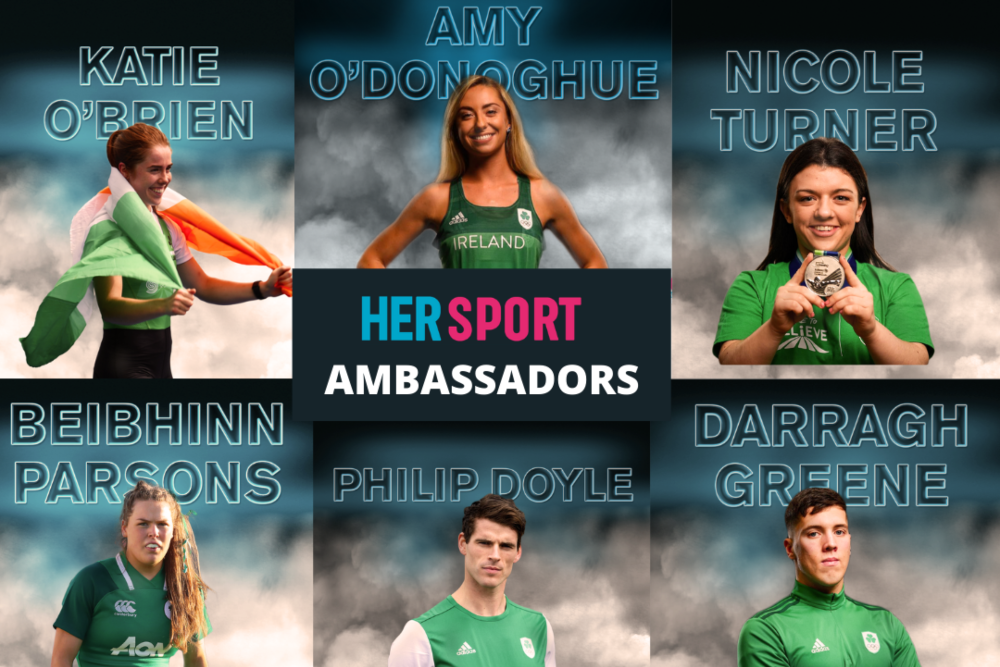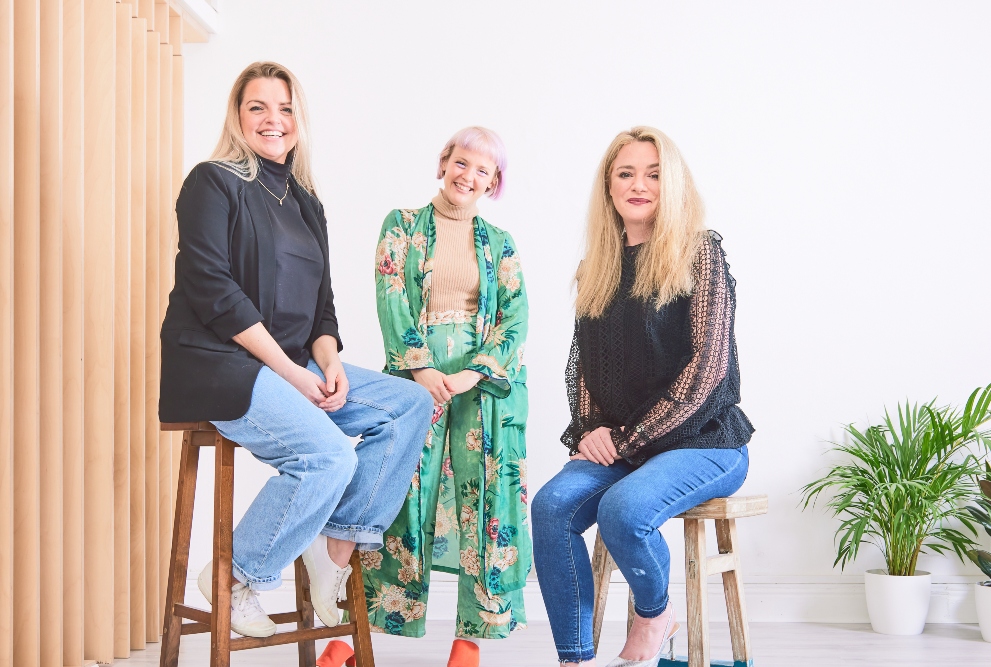Podcast Ep 59: A founding father of Ireland’s celebrated animation sector Andrew Fitzpatrick of Monster Entertainment talks about the past, present and future of the industry.
Ireland’s animation sector punches above its weight and the international standing of the sector was reflected in Wolfwalkers, a film created by Cartoon Saloon in Kilkenny being nominated for best animated feature at the recent 93rd Academy Awards.
Irish animation studios from Cartoon Saloon to Brown Bag Films and Lighthouse Studios are driving the sector forward. Many are working with some of the biggest names in global broadcasting—including Disney, Nickelodeon, Cartoon Network and the BBC—making animated series that are shown to millions of children all over the world every week. Award-winning features and shorts, animated programming for adults, apps and games are being made here by our dynamic, technically advanced—and entirely indigenous—2D and 3D studios.
“It’s a rapidly changing business and has been since I got into it. It’s just that the pace of change has accelerated”
According to Screen Ireland the Irish animation industry has long been a creative cornerstone of Ireland’s vibrant film industry, and has witnessed substantial growth in the last decade. It is an integral and important component of Ireland’s digital and creative economy, employing 1,600 full-time staff.
Andrew Fitzpatrick’s company Monster Entertainment handles a diverse range of programming in the area of children’s entertainment. Prior to Monster, Fizpatrick helped to lay the foundations of the multi-million-dollar Irish animation sector when he ran the Sullivan Bluth Studios, which at its peak was one of Europe’s largest animation studios.
There’s art in numbers
The legendary Sullivan Bluth Studios were established in Dublin in 1979 by Don Bluth, Morris Sullivan and several former Disney animators to work on films such as An American Tail and the Secret of Nimh and All Dogs go to Heaven.
As a stalwart of an industry for the best part of his career, Fitzpatrick’s route into the industry was as a number cruncher rather than a doodler. After graduating as an accountant from UCD he realised he didn’t actually want to be a traditional accountant as he found the work too boring.
He found his way into management consulting and worked with IDA client companies that were setting up in Ireland for the first time, recruiting local management to lead the operations.
In the late 1970s one of those clients Sullivan Studios had established in Balgriffin and was hard at work on An American Tail. The company was in the midst of negotiations for what was then the largest non-manufacturing grant to be awarded by the IDA and the plan was to recruit more than 300 people, including the transfer of 77 people from the US to Ireland.
One day, in the midst of negotiations, the IDA raised concerns about the organisational chart and CEO Morris Sullivan’s age. “They said: ‘with all due respect you are 69 years old. We’re putting in all of this money and we need someone we can call.’ He turned to me kind of stricken and said: ‘will you do this?’ And that was how I got involved in animation.”
What followed was a creative whirlwind where popular films including An American Tale, All Dogs Go to Heaven, The Land Before Time and the Secret of Nimh were made in Dublin. Between 1989 and 1995 Fitzpatrick reckons he would have raised $160m to finance various productions.
Despite these successes, the studio was closed down in 1995 after the release of their final feature, The Pebble and the Penguin.
Fitzpatrick continued to fly the flag for the Irish animation sector, focused on the distribution aspect of the animation business and Monster Entertainment was born.
Established in 1998, Monster Entertainment is a brand management company which develops entertainment brands and distributes them worldwide to 193 countries countries. Shows it has produced or co-produced include I’m a Creepy Crawly, I’m a Dinosaur, I’m an Animal, I’m a Monster, The Travels of a Young Marco Polo and Rockabye Island and it also sells animation series widely on behalf of Irish production companies.
Last year Monster sold a cartoon series called Pins & Nettie to Irish national broadcaster RTE and broadcasters Showmax in South Africa and YLE Finland. The production was created by Dublin studio Daily Madness Productions. Pins & Nettie tells the story of two hedgehogs who experience shyness. Children’s video-on-demand services Minno and Hopster will also broadcast the programme, which is intended to explore the issue of anxiety for children of preschool ages.
Talent and finance
Looking at today’s animation sector in Ireland Fitzpatrick credits the Section 481 support as being pivotal to the growth of the sector, especially in the regions. Projects outside of Dublin, Wicklow and Cork, get a slightly higher tax break at 37pc compared to the general rate of 35pc. According to Screen Ireland, this has contributed to a 5pc uplift in activity in 2020 and 2021 on projects capped at €70m.
“I’m noticing that there are more studios setting up outside of Dublin to be able to take advantage of it. I think that’s the next wave. It’s all quite creatively-driven and people are coming up with good projects that they are selling internationally.”
Fitzpatrick describes Monster’s original core business as “selling the stuff that other people make to channels around the world.”
While much of this content is Irish, he says the company also sells animated series on behalf of producers from South Africa and Brazil. Its top-selling Irish animation is The Day Henry Met … produced by WiggleyWoo.
“We find content all of the place and we place it all over the place. We’re a bit like a middleman. There are 193 countries in the world, and we’ve struck deals for The Day Henry Met … in probably 192 of those countries!”
He believes that finance will always be a constraint for the sector, but the most pressing issue is talent. “There are reasonably good relationships with the education sector which is leading to these bottlenecks being addressed.”
Fitzpatrick views the onset of streaming positively but believes it presents a challenge and an opportunity for traditional linear broadcasters to reinvent themselves. That said, while people are watching less television, the amount of entertainment they are consuming is exponential. “And that’s a huge opportunity. Because more production means more money for the studios and overall that’s a very good thing.”
Asked if he has any regrets with not pursuing a career as an accountant, Fizpatrick concluded: “I’m really pleased that it worked out the way it did. It’s a rapidly changing business and has been since I got into it. It’s just that the pace of change has accelerated. You have to be fast on your feet to be able to adapt to the changes and one of those changes we’ve been trying to make has been to get into the production end of things. Right now, we’re working to get two feature films off the ground. There’s a lot of money to be raised. It’s a lot more expensive. But we’re somewhere down the road to raise the finance to make two features.”
See more:
By John Kennedy (john.kennedy3@boi.com)
Published: 21 May 2021






